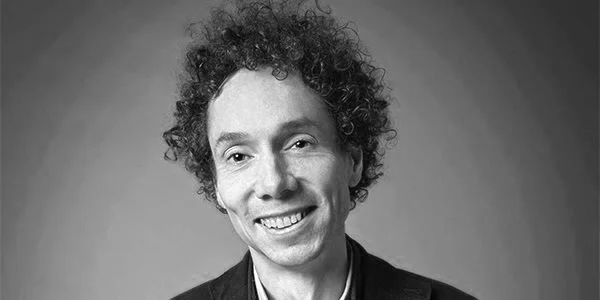“To uncover serendipity, you have to be a student of all of the different mechanisms of chance encounters with the unusual and the insightful.”
I recently came across an interview with non-fiction writer, Malcolm Gladwell. The interviewer asks him what he does to get creative ideas. To which, he outlines a framework for serendipitous learning. To sum it up, go to a library and look around randomly. Look at how ideas are clustered and labelled. Intentionally follow search engine counterculture. Bookshelves offer a non-biased display of connected data points, unlike search recommendations based on your data double's previous thoughts. Your search history, website cookies, pixel fires, etc. They add up and have real influence.
Serendipitous learning thrives when the focus shifts to an accurate display of the world's inner workings and how ideas cluster in relation to others, regardless of the observer. It may sound silly to say the problem is too much technology. Especially when a digital divide still exists for most of the world. To that I'd say, a) yes it's a privilege to have this discussion in the first place and b) it's naïve to not consider the global villages we cyber exist and interact in. A global community interconnected with mass media makes you absorb the same news and entertainment programming as everyone else. It makes it harder to avoid hegemony, as Italian philosopher Gramsci likes to say. You are vulnerable in a state where biased information can subliminally make its way into your “seems right “attitudes.
I mean have you heard of the mere-exposure-effect? Humans like things the more they see them. Now imagine another person showing these things with their own agenda. You can quickly see why that's problematic when you want to come up with new ideas. It's a cognitive war waged against you. The scary thing is you can’t even see it coming most of the time.
This vulnerability counts as a factor in what sociologists like to term a risk society. A place that systematically deals with issues caused by modernity itself. Think of factories that pump out tons of food each day to feed thousands, but also pollute a pond nearby. I believe that tradeoff happens with your ideas and the internet. You want to create in an environment that pollutes you. Serendipitous learning is the detox. It gives you the mental space to follow your natural inclinations and to create your own path. You can only tap into the deepest, motivating parts of your psyche if you claim your mind. In this game of cognitive warfare, are you the player or spectator? The answer might surprise you.
Back to Malcolm Gladwell, I think he's interesting and “gets it“. In fact, it seems like writers in general get it. They tend to train themselves to notice when they get an idea to build off of. It's not that they get ideas or are inspired more than the average person, they catch them more often. Why? Because a writer dedicates a time and place for mind wandering.
Similarly, a time and place for refined thinking when they write. Shonda Rhimes, a genius screenwriter and television producer, frames it as "work doesn't work without play". I believe her. I think most people would too, but our counterproductive workaholic culture likes to overstay its visit in our minds. So, the brain's metaphorical cigarette break becomes to mindlessly consume mass media. You're robbed of the antidote, serendipitous learning and play. If you don't think play is valuable, then you don't believe in confluence. If you don't think confluence is valuable, then you don't believe in creation.
Confluence has two meanings here: the junction of two rivers and the process or act of merging. That's what happens when you browse books in a library. You're one river and the unbiased books another. One entity is rooted in you, everything you are, think, and believe. The other entity is a cluster of sorted ideas without any remnants of you. As two rivers, each of you have a strong current and flow with different potential. When you merge, that potential is realized. How can you merge if you're always occupied with your own river? You can't. That's why you need play and a little thing called, serendipitous learning.
I believe that is where Malcolm Gladwell says good ideas come from.

